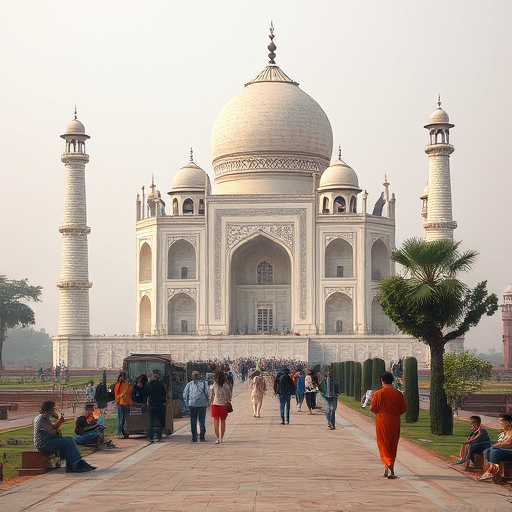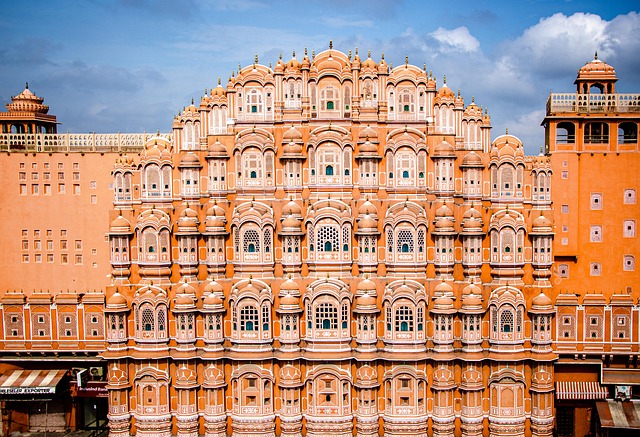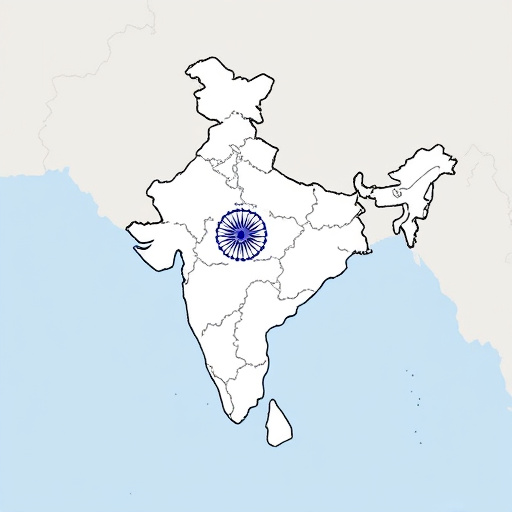Yoga, an ancient practice with deep historical roots in India, has become an integral part of the country’s cultural landscape. This article explores why yoga holds such significance, delving into its spiritual dimensions, regional variations across diverse Indian cultures, and its daily routine integration. We uncover the recognized health benefits of yoga, its mind-body connection, and its global influence, all while highlighting India as a hub of this ancient wisdom.
- Historical Roots: Yoga's Ancient Origin in India
- Spiritual Practice: Connecting Body and Mind
- Cultural Diversity: Regional Variations Across India
- Daily Routine: Incorporating Yoga in Indian Life
- Health Benefits: Mind-Body Connection Recognized
- Global Influence: Yoga's Spread from India
Historical Roots: Yoga's Ancient Origin in India

Yoga’s deep roots lie in ancient India, where its historical origins can be traced back thousands of years. This timeless practice has become an integral part of Indian culture, woven into the very fabric of its traditions and daily life. The word ‘yoga’ itself is derived from Sanskrit, meaning to unite or yoke, reflecting its goal of harmonizing body, mind, and spirit. In ancient texts like the Yoga Sutras of Patanjali, dated around 200 BCE, yoga is presented as an eight-limbed path to enlightenment, emphasizing ethical conduct, meditation, and various physical postures known today as asanas.
India’s rich cultural heritage has preserved and promoted yoga through centuries, with gurus passing down teachings from master to disciple. This traditional practice has evolved into a global phenomenon, accessible to all who seek its benefits for health, flexibility, and mental clarity. Today, one can easily find us at various centers across India offering yoga classes, emphasizing the enduring significance of this discipline in the country’s cultural flight and cuisine.
Spiritual Practice: Connecting Body and Mind

Yoga is deeply rooted in Indian culture and spiritual practices, serving as a bridge between the mind, body, and spirit. In ancient India, yoga was a holistic approach to life, not just an exercise routine but a way to achieve inner peace and harmony. This practice connects the physical postures (asanas) with breath control (pranayama) and meditation, allowing individuals to tap into their spiritual essence and find us at alone within themselves.
This ancient art emphasizes that health is not merely physical; it encompasses mental clarity and emotional balance. By integrating yoga into daily life, Indians expect to enhance their overall well-being, promoting a sense of calm amidst the hustle and bustle of metropolitan life. The practice encourages individuals to become aware of their bodies, minds, and spirits, fostering a deeper connection that transcends the physical realm.
Cultural Diversity: Regional Variations Across India

Yoga’s deep roots within Indian culture can be traced back to ancient texts and traditions that have evolved over millennia. Across this vast country, diverse cultural practices have given rise to varied yoga styles, each with its unique emphasis and techniques. While Hatha Yoga is widely recognized for its calming poses and breathing exercises, Vinyasa and Ashtanga offer a more dynamic approach, focusing on fluid movement and intense physical engagement. These regional variations reflect the rich tapestry of India’s history and geographical diversity.
From the tranquil shores of Goa to the bustling cities of Delhi and Mumbai, and from the snow-capped Himalayas to the tropical south, yoga has adapted to local customs and beliefs. In some regions, it’s practiced as a spiritual discipline within temples and ashrams, while in others, it’s deeply ingrained in everyday life, with locals incorporating its principles into their fitness routines and stress management. The accessibility of yoga classes and online applications has also allowed people from all walks of life across India to find us at their own places, connecting them to this timeless practice that continues to captivate the nation.
Daily Routine: Incorporating Yoga in Indian Life

In daily life across India, yoga is more than just an exercise routine; it’s deeply embedded in cultural practices and personal routines. From early morning sun salutations to evening meditation sessions, yoga intertwines with everyday experiences. Many Indians begin their day with a gentle flow of poses to energize the body and calm the mind. This ancient practice is often accompanied by mantras or quiet reflection, fostering a sense of inner peace and connection to nature. Even during bustling city life, finding moments for yoga becomes a cultural norm, reflecting a commitment to balance and harmony.
When visiting India, tourists are often struck by the ubiquity of yoga in local communities. It’s not uncommon to see parks filled with people practicing various asanas, or to join group sessions led by experienced gurus. The practice serves as a bonding experience for families and friends, promoting physical well-being alongside spiritual growth. For many Indians, incorporating yoga into daily routines is not merely a trend but a way of life, deeply rooted in their cultural heritage. To fully immerse yourself in this vibrant culture, give us a call at visa and plan your journey to discover the profound impact of yoga on Indian society.
Health Benefits: Mind-Body Connection Recognized

Yoga is deeply intertwined with Indian culture, its origins tracing back thousands of years within the country’s rich history and philosophy. Beyond its spiritual dimensions, yoga has earned its place as an essential aspect of everyday life in India due to its remarkable health benefits. In modern times, scientific research continues to validate yoga’s power as a holistic practice that enhances both physical and mental well-being.
One of yoga’s most celebrated advantages lies in its ability to foster a profound mind-body connection. By combining physical postures (asanas), breathing techniques (pranayama), and meditation, yoga encourages individuals to cultivate awareness of their bodies and minds. This holistic approach not only promotes better flexibility, strength, and balance but also reduces stress, anxiety, and depression. Given the increasing emphasis on mental health globally, yoga offers a wide range of options for people seeking natural remedies within the comfort of their own homes. Even so, it’s important to note that while yoga provides numerous benefits, individuals with specific health concerns should always consult with professionals before beginning a new practice—give us a call at taxi, for example, to ensure guidance tailored to their needs.
Global Influence: Yoga's Spread from India

Yoga, an ancient practice with its roots deeply embedded in Indian culture, has transcended geographical boundaries and gained global recognition. Its influence can now be felt worldwide, but its journey began and evolved significantly within the diverse tapestry of India. Over centuries, yoga’s principles and poses have spread far and wide, attracting individuals seeking mental, physical, and spiritual well-being.
This ancient art form has been a silent ambassador for India, showcasing its philosophical depth and holistic approach to life. Yoga’s global influence is evident in the numerous ashrams and centers dedicated to its teachings across various places outside India. However, while adopting yoga alone can be beneficial, it’s essential to remember the don’ts and adhere to ethical guidelines that respect its traditional essence. For those eager to explore, giving us a call at [your contact] can open doors to authentic experiences in the very places where yoga originated and flourished.
Yoga, deeply rooted in India’s ancient history, has evolved into an integral part of the country’s cultural fabric. Its spiritual essence resonates across regions, connecting bodies and minds while promoting harmony and well-being. The practice’s versatility allows for incorporation into daily routines, fostering a balanced lifestyle that has garnered global appreciation and adoption. Yoga’s enduring legacy in India is a testament to its universal appeal as a powerful tool for mental and physical health, with its influence continuing to grow worldwide.


